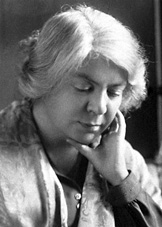"After the Divorce" is a novel by Italian author Grazia Deledda. This tragedy is set in Sardinia Constantino Ledda is convicted on charges for murdering his bad uncle. Constantino is innocent, but he accepts the verdict because of her wife Giovanna. After Constantino is convicted, Giovanna has no economic means to support her family, so she divorces her husband and marries again with a wealthy but cruel landowner. Constantino is released after the real killer confesses, and he and Giovanna start a forbidden romance. Grazia Deledda (27 September 1871 - 15 August 1936) was an Italian writer who received the Nobel Prize for Literature in 1926. She was the first Italian woman to receive this honor. Translated from the Italian by MARIA HORNOR LANSDALE (1905)
Dieser Download kann aus rechtlichen Gründen nur mit Rechnungsadresse in A, B, BG, CY, CZ, D, DK, EW, E, FIN, F, GR, HR, H, IRL, I, LT, L, LR, M, NL, PL, P, R, S, SLO, SK ausgeliefert werden.










